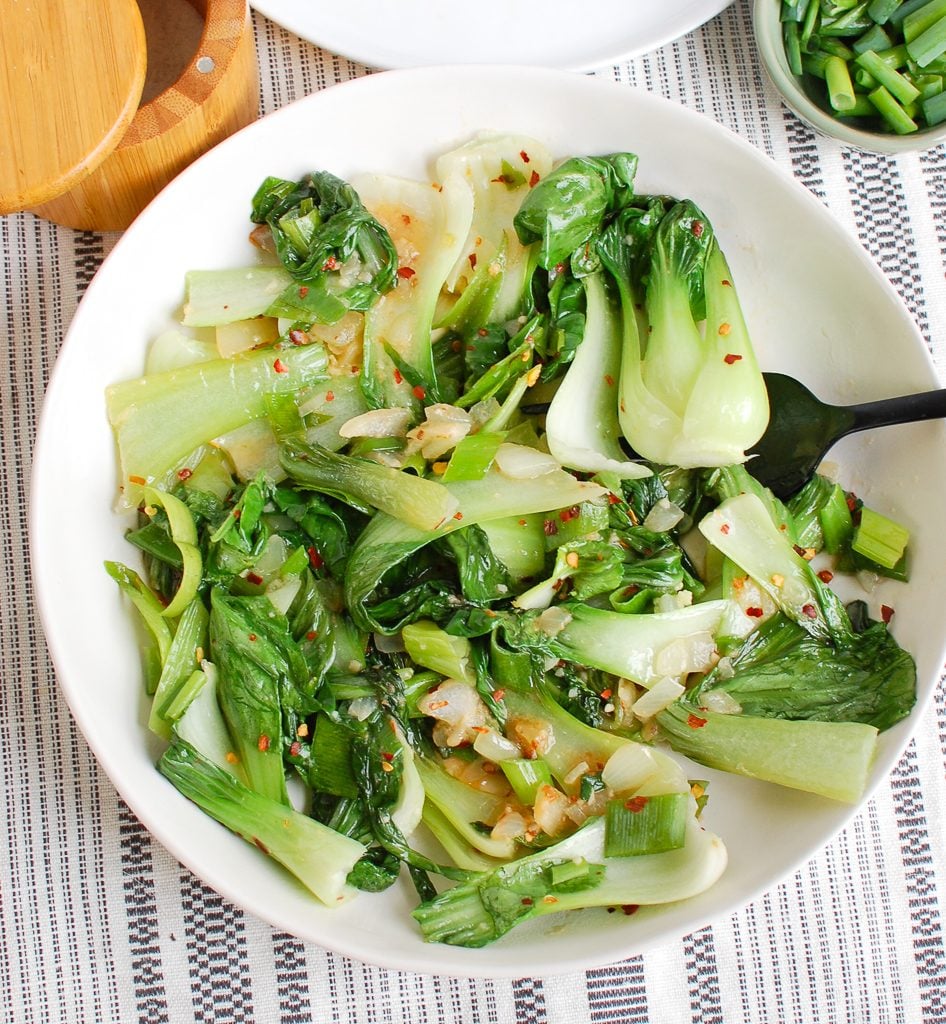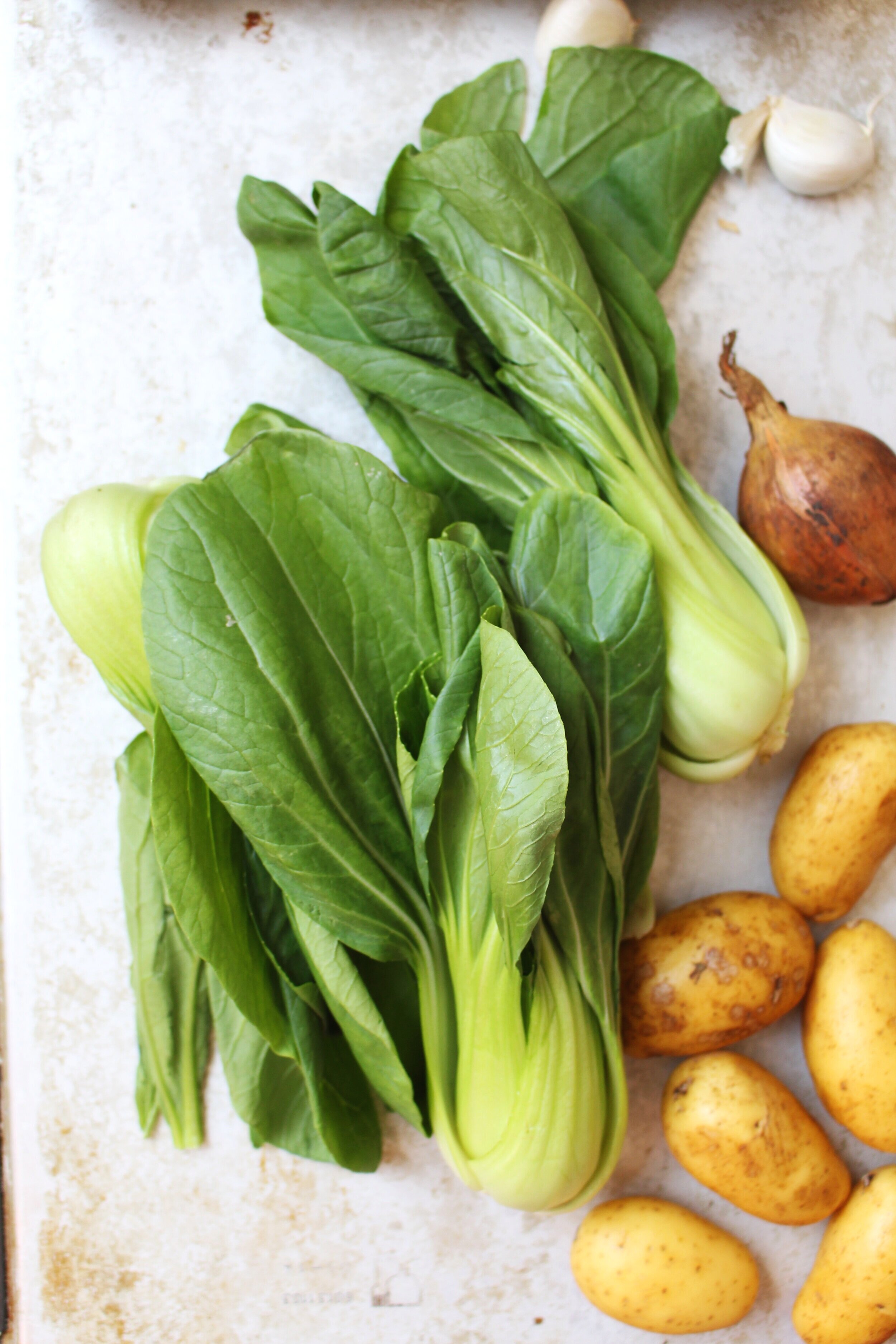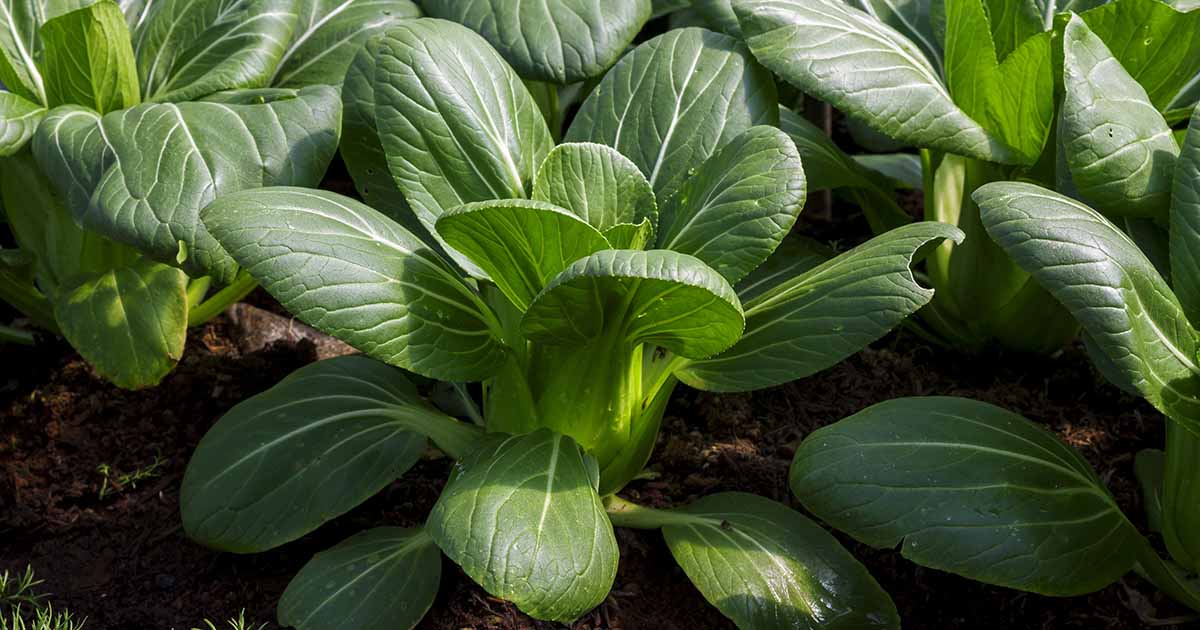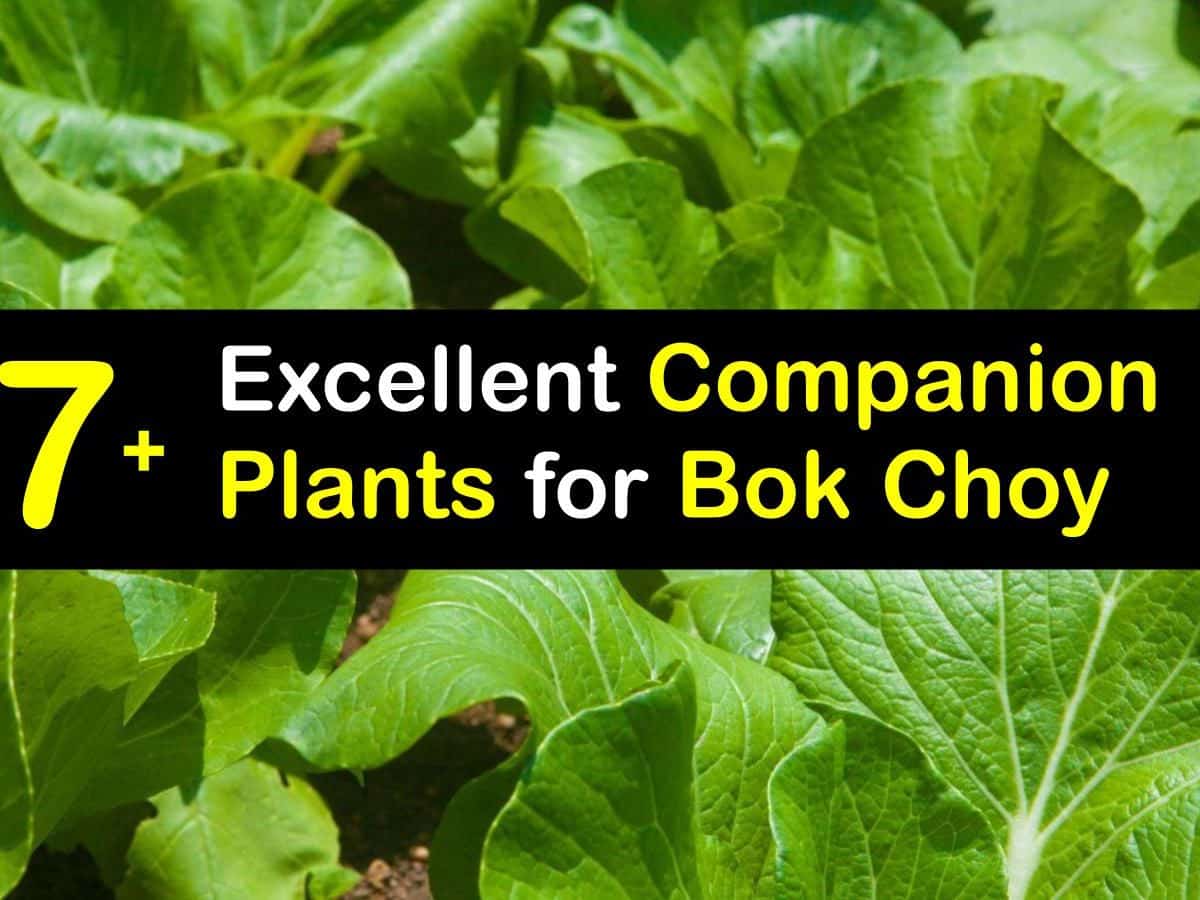Best Companion Plants For Pak Choy
Best Companion Plants for Pak Choy
Pak choy, also known as bok choy, is a delicious and versatile vegetable that can be enjoyed in a variety of dishes. It is a member of the cruciferous vegetable family, which includes broccoli, cabbage, and kale. Pak choy is a cool-season crop that prefers full sun and moist soil. It is relatively easy to grow and can be harvested in as little as 40 days.
One of the best ways to ensure a successful pak choy harvest is to plant it with companion plants. Companion planting is the practice of planting certain types of plants together in order to benefit each other. There are a number of companion plants that can benefit pak choy, including:
- Bush beans: Bush beans are excellent companion plants for pak choy because they are nitrogen-fixing. Nitrogen is an essential nutrient for plant growth, and bush beans help to increase the levels of nitrogen in the soil. This can help the pak choy to grow more quickly and produce larger yields.
- Carrots: Carrots and pak choy are both root vegetables that can benefit from being planted together. The carrots help to loosen the soil, which makes it easier for the pak choy roots to grow. The pak choy, in turn, helps to shade the carrots, which can help to prevent them from bolting (flowering).
- Celery: Celery and pak choy are both members of the Apiaceae family, and they can benefit from being planted together. They share similar growing conditions and pest/disease resistance. Celery can help to repel pests from pak choy, and pak choy can help to deter celery from bolting.

- Cucumbers: Cucumbers and pak choy can be planted together to help improve air circulation. This can help to prevent both plants from developing diseases. Additionally, the cucumbers can help to shade the pak choy, which can help to prevent it from bolting.

- Dill: Dill is a herb that can help to repel pests from pak choy. It also has a strong aroma that can attract beneficial insects, such as ladybugs and hoverflies. These insects can help to control pests, such as aphids and cabbage moths.
- Garlic and onions: Garlic and onions have strong scents that can repel pests from pak choy. They can also help to improve the flavor of the pak choy.

- Potatoes: Potatoes and pak choy can be planted together to help improve soil drainage. The potatoes help to loosen the soil, which allows the pak choy roots to grow more easily. The pak choy, in turn, helps to shade the potatoes, which can help to prevent them from developing sunscald.

- Rosemary: Rosemary is a herb that can help to repel pests from pak choy. It also has a strong aroma that can attract beneficial insects, such as ladybugs and hoverflies. These insects can help to control pests, such as aphids and cabbage moths.

In addition to these companion plants, there are a few plants that should not be planted near pak choy. These include:
- Broccoli: Broccoli and pak choy are both members of the Brassica family, and they can cross-pollinate. This can result in pak choy that has a bitter taste.
- Cabbage: Cabbage and pak choy are both members of the Brassica family, and they can cross-pollinate. This can result in pak choy that has a bitter taste.
- Peppers: Peppers and pak choy are both members of the nightshade family, and they can cross-pollinate. This can result in pak choy that has a bitter taste.
- Tomatoes: Tomatoes and pak choy are both members of the nightshade family, and they can cross-pollinate. This can result in pak choy that has a bitter taste.
By planting pak choy with the right companion plants, you can help to ensure a successful harvest. Companion planting can also help to improve the flavor of the pak choy and deter pests. So next time you are planting pak choy, be sure to consider some of these companion plants.
Pak choi is a delicious and nutritious leafy green vegetable that is easy to grow in your garden. But did you know that there are certain plants that you should and should not plant near pak choi?
Some good companion plants for pak choi include:
- Bush beans: Bush beans are nitrogen-fixing plants, which means they add nitrogen to the soil. This is beneficial for pak choi, which is a heavy feeder.
- Carrots: Carrots and pak choi have different root systems, so they will not compete for resources. Additionally, carrots can help to repel pests from pak choi.
- Celery: Celery and pak choi both prefer cool, moist weather. Planting them together can help to create a microclimate that is ideal for both plants.
- Cucumbers: Cucumbers and pak choi can both benefit from the shade provided by each other. Additionally, cucumbers can help to attract pollinators to pak choi.
Some plants that you should avoid planting near pak choi include:
- Broccoli: Broccoli and pak choi are both members of the Brassica family, and planting them together can increase the risk of disease.
- Kale: Kale and pak choi are both heavy feeders, and planting them together can deplete the soil of nutrients.
- Peppers: Peppers and pak choi are both susceptible to the same pests, so planting them together can make it more difficult to control pests.
If you are looking for more information about pak choi companion plants, I recommend visiting Garden Wiki. This website has a comprehensive list of companion plants for pak choi, as well as information about the benefits of companion planting.
FAQ of pak choi companion plants
- What are some good companion plants for pak choi?
Pak choi is a cool-season vegetable that is relatively pest- and disease-resistant. It can be grown in full sun or partial shade, and it prefers well-drained soil. Some good companion plants for pak choi include:
* Carrots: Carrots help to repel pests like aphids and carrot flies.
* Beetroot: Beetroot helps to improve the flavor of pak choi.
* Bush beans: Bush beans help to provide shade for pak choi, which can help to protect it from pests and diseases.
* Cucumbers: Cucumbers help to attract beneficial insects, which can help to control pests.
* Lettuce: Lettuce helps to suppress weeds, which can help to reduce competition for water and nutrients.
- How far apart should pak choi plants be planted?
Pak choi plants should be planted 12-18 inches apart. This will give them enough space to grow and mature properly.
- How long does it take pak choi to grow?
Pak choi can be harvested in as little as 30 days, but it will typically take 45-60 days to reach maturity.
- What are some common pests and diseases that can affect pak choi?
The most common pests that can affect pak choi are aphids, cabbage loopers, and slugs. The most common diseases that can affect pak choi are black rot, downy mildew, and white rust.
- How can I prevent pests and diseases from affecting my pak choi plants?
There are a number of ways to prevent pests and diseases from affecting your pak choi plants. These include:
* Planting resistant varieties
* Rotating crops
* Using insecticidal soap or neem oil
* Watering your plants regularly
* Thinning your plants to improve air circulation
Image of pak choi companion plants
- Carrots: Carrots and pak choi are both cool-season crops that can be planted together. Carrots help to suppress weeds, and pak choi can help to deter pests.

- Bush beans: Bush beans are another cool-season crop that can be planted with pak choi. Bush beans provide nitrogen for the pak choi, and pak choi can help to shade the beans from the hot sun.

- Celery: Celery and pak choi are both members of the Apiaceae family, so they have similar growing requirements. They can be planted together to help each other thrive.

- Cucumbers: Cucumbers and pak choi can be planted together in a staggered fashion. The cucumbers will grow taller than the pak choi, so they will provide shade for the pak choi in the hot summer months.

- Dill: Dill is a herb that can be planted with pak choi to help repel pests. Dill also has a sweet aroma that can help to attract beneficial insects.


Post a Comment for " Best Companion Plants For Pak Choy"